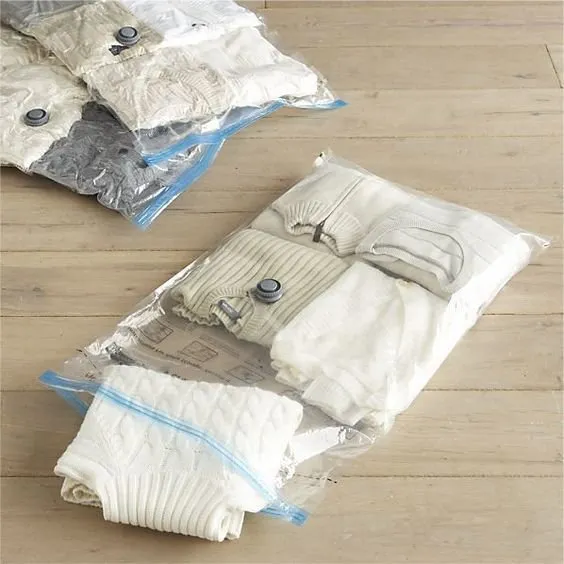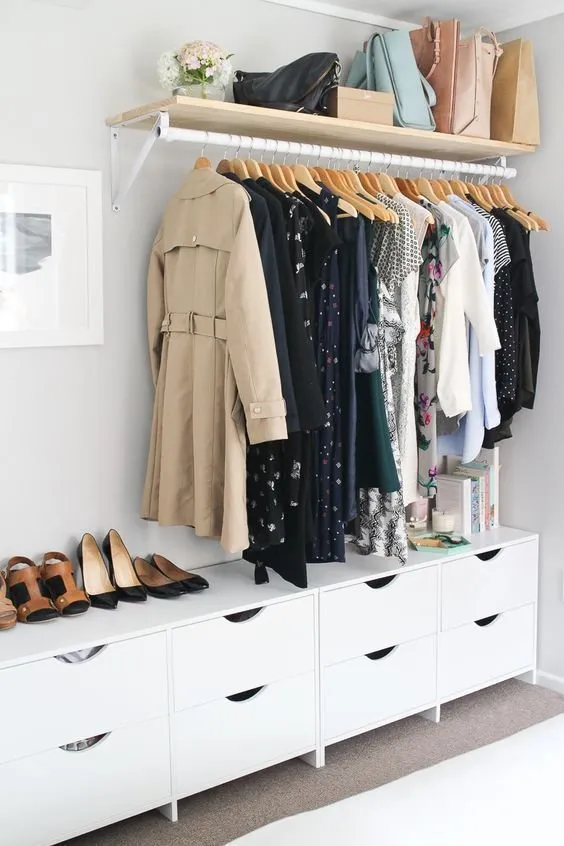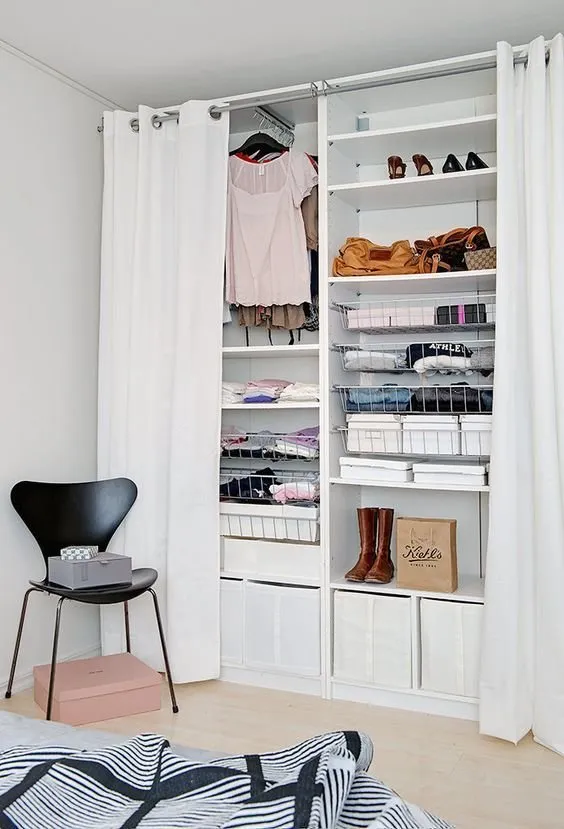5 Common Mistakes in Clothing Storage
Thoughtful clothing storage is the key to quick morning work preparations. Uncomfortable hangers, inconvenient closet organization – we've collected several warning tips.
Everyone makes mistakes: we've gathered the most common ones. Keeping clothes in perfect condition is much more realistic: we tell how to choose hangers, where to fold wool items, and whether it's worth spending on vacuum bags.
Mistake 1: storing knitwear on hangers
Knitwear items are not designed for long-term storage on hangers, as they easily deform and stretch under their own weight.
Solution: favorite sweaters and cardigans are better stored on a shelf folded. At most, a few days on a fabric hanger-rod that fits the size exactly.

Mistake 2: using vacuum bags
Any clothing (and leather and fur items in particular) needs to 'breathe', otherwise it's a direct path to musty smell and fabric damage.
Solution: use them only for a short period (one to one and a half months) — provided all clothes are clean and well-dried. Even manufacturers on packaging write that clothes stored in bags require periodic airing.

Mistake 3: relying on wire hangers
Even if the clothing is not knitwear, prolonged storage on thin hangers can cause it to lose shape — especially if the clothing is much smaller or larger than the standard shoulder size.
Solution: replace wire hangers with more durable wooden and plastic ones. It is absolutely forbidden to store classic suit jackets, coats, and fur coats on thin hangers.

Mistake 4: ignoring dry cleaning
If the care instructions for your clothing specify dry cleaning, even gentle washing will not do it any good.
Solution: carefully study the properties of garments before purchasing, and if such an item has made its way into your wardrobe, don't hesitate to take it to specialists when needed.
Mistake 5: cutting corners on closet organization
Most wardrobes and even individual walk-in closets require modifications or additional accessories. Otherwise, wide shelves will become cluttered, open racks will accumulate dust, shoes will pile up in a heap, and the desired piece of underwear will be impossible to find.
Solution: assess the volume of your clothing and plan in advance how many shelves, metal baskets, and drawers you'll need. Closet organization can be sketched by hand or done with a special planner.

The editorial team thanks the School of Interior Design and Decoration for their help in preparing this material for Chez moi enthusiasts.
Need a renovation specialist?
Find verified professionals for any repair or construction job. Post your request and get offers from local experts.
You may also like
More articles:
 11 Design Ideas for Decorating a TV Area
11 Design Ideas for Decorating a TV Area Saving on Housing and Utilities: 21 Practical Tips That Really Work
Saving on Housing and Utilities: 21 Practical Tips That Really Work 7 foolproof design tricks for a single man's apartment
7 foolproof design tricks for a single man's apartment 7 More Subtle Ways to Create a 'Luxury' Interior
7 More Subtle Ways to Create a 'Luxury' Interior Wardrobes in the Living Room
Wardrobes in the Living Room How to Divide a Room into Two Zones
How to Divide a Room into Two Zones Design of a Two-Room Khrushchyovka with and without Relocation
Design of a Two-Room Khrushchyovka with and without Relocation Interior Design for Teen Girl's Room in Modern Style
Interior Design for Teen Girl's Room in Modern Style